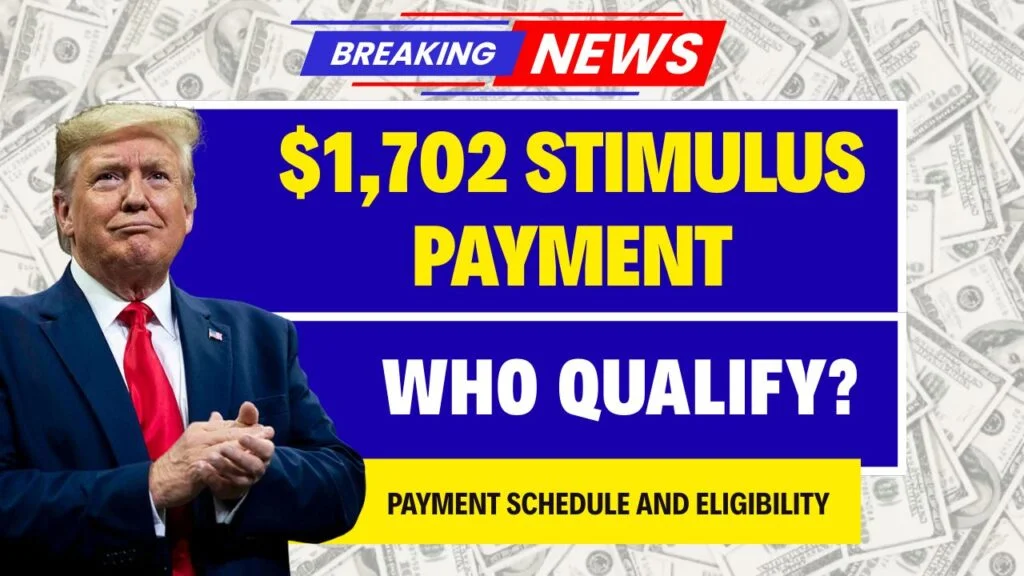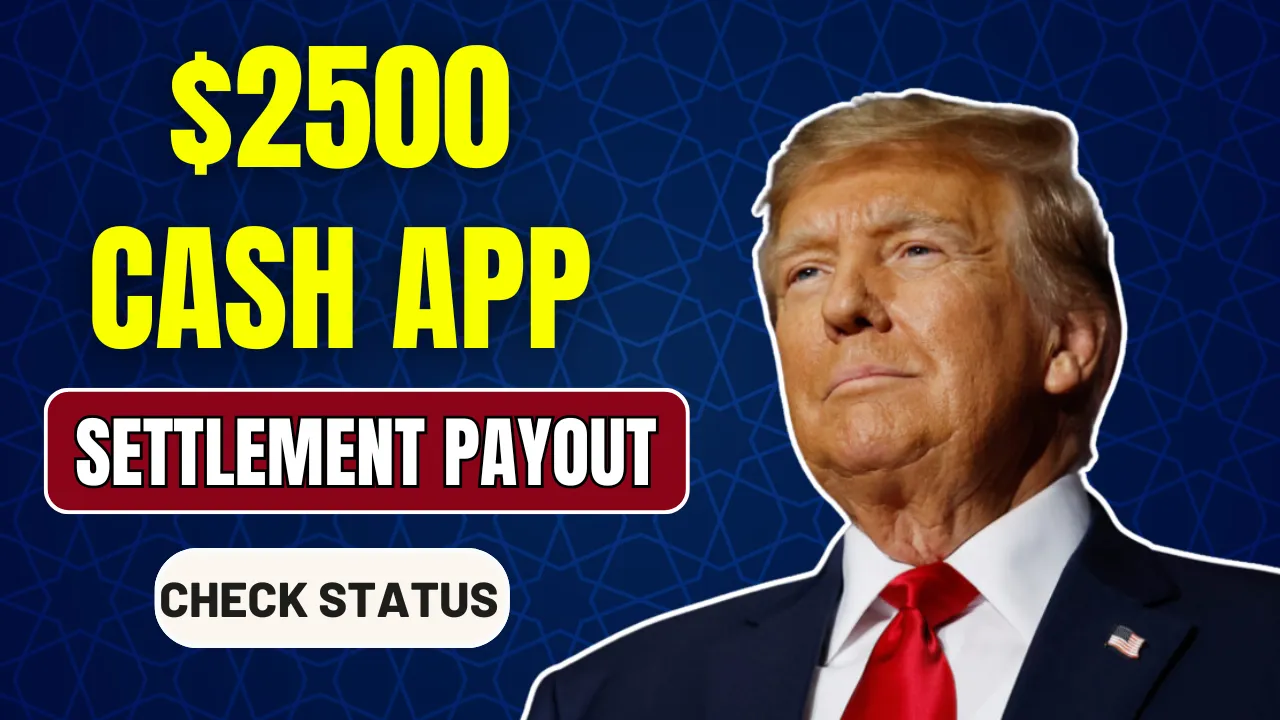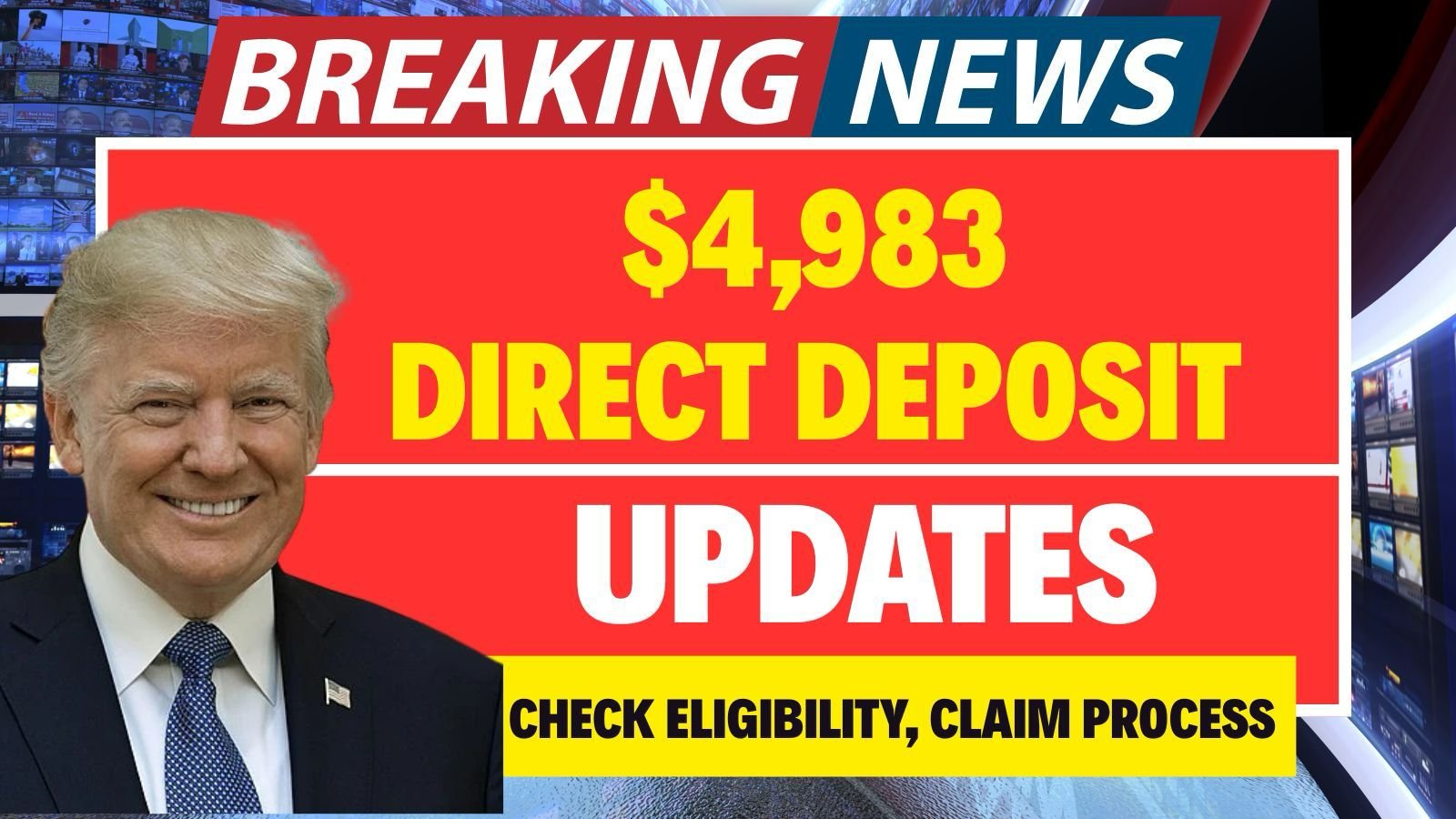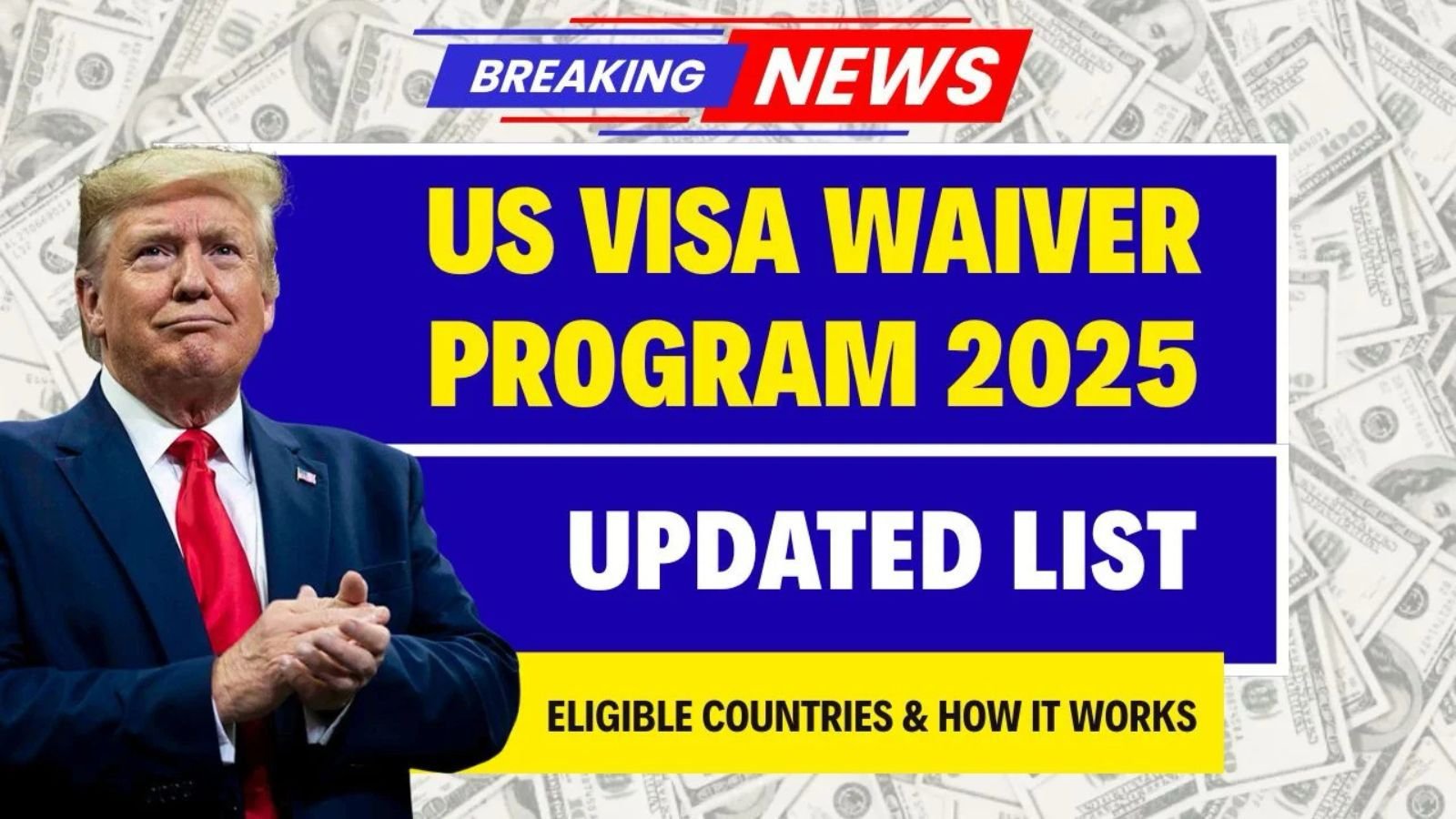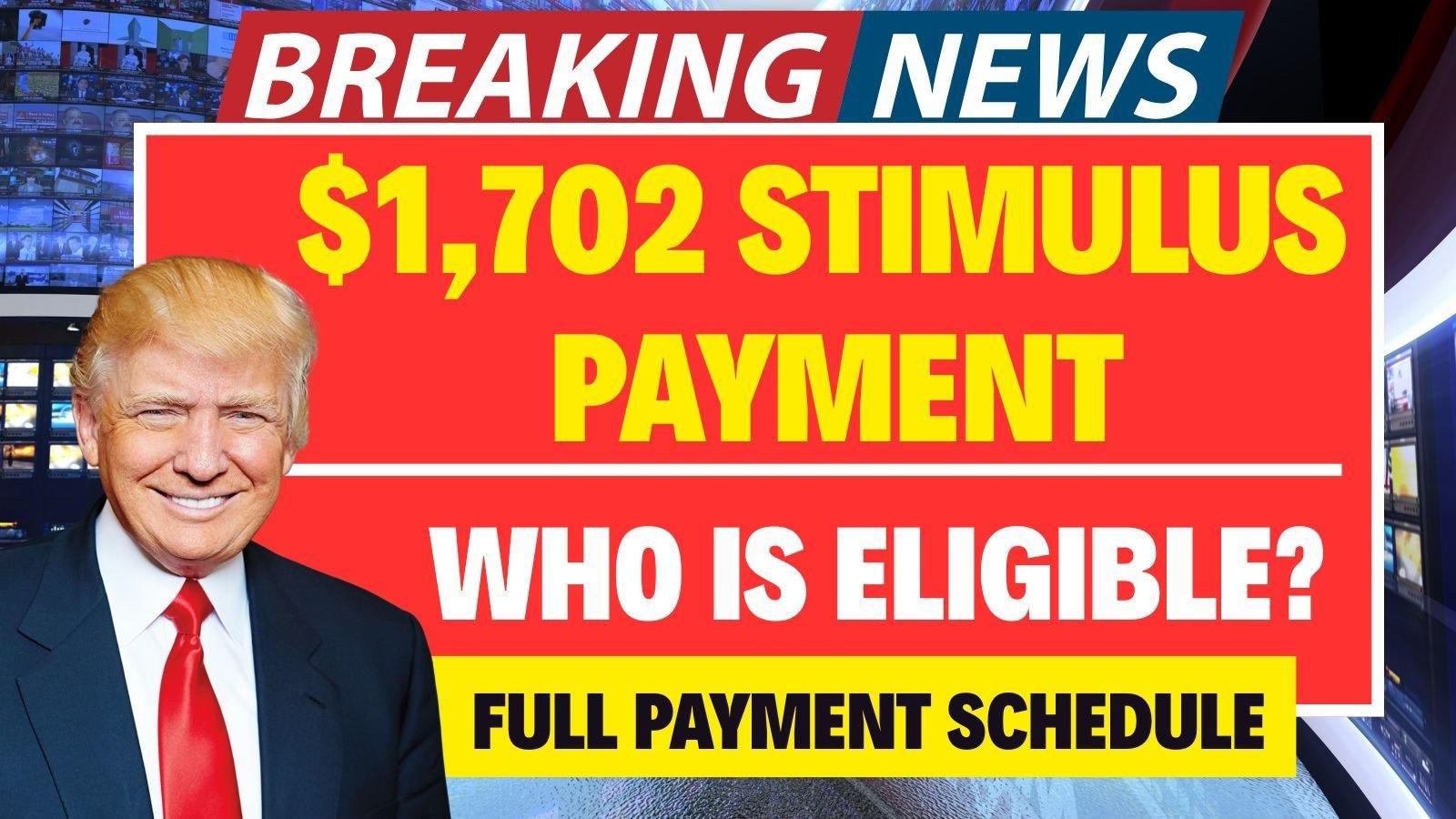$1,702 Stimulus Payment for Everyone – August 2025 Full Payment Schedule
The month of August 2025 is bringing good news for millions of people in the United States. A $1,702 stimulus payment is being prepared to support eligible individuals and families. While not everyone will receive this payment, many are wondering when it will arrive and who qualifies for it.
This article provides a simple explanation about the $1,702 payment, the schedule for when people will receive it, and other important details. If you’re confused about this payment or want to know if you’re eligible, this guide will help you understand everything in a clear and easy way.
Overview Table
| Particulars | Details |
|---|---|
| Payment Name | $1,702 Stimulus Payment |
| Payment Amount | $1,702 per eligible person |
| Payment Month | August 2025 |
| Mode of Payment | Direct Deposit / Paper Check |
| Eligible Groups | Low to mid-income residents, seniors, veterans |
| Main Payment Date | August 21, 2025 |
| Issued By | State / Federal Agencies (Program-based) |
Background & Purpose of the Payment
In recent years, stimulus checks have become a way to help people manage rising expenses, especially after the effects of inflation and higher living costs. The $1,702 payment is aimed at giving financial relief to eligible citizens who might be facing difficulties due to high rent, groceries, fuel, and utility bills.
This payment is not considered a one-time national COVID relief check like in the past. Instead, it is part of ongoing state or program-based assistance. States like Alaska have a dividend payment program, and some federal groups are also releasing support for select individuals like senior citizens and veterans.
Who Will Receive the $1,702 Stimulus Payment?
Not everyone is going to receive this payment. There are specific eligibility rules that must be followed. Here’s a general idea:
-
People who filed tax returns in the previous year and fall under low to moderate income groups.
-
Senior citizens, Social Security recipients, disability benefit recipients, and veterans may also qualify.
-
In some cases, individuals who are part of a state dividend program or energy assistance scheme may also get the full amount.
The goal is to help the most financially stressed citizens by giving them extra money to manage their living expenses.
Payment Schedule: When Will You Receive It?
The official payment schedule has been released, and most of the payments will start getting processed by August 21, 2025. The mode of payment and date of application may change your payment date.
Main Dates to Remember:
-
August 13, 2025: Last date for status to be marked as “Eligible – Unpaid” to receive payment in the first round.
-
August 21, 2025: Main payment release for direct deposit users.
-
August 24–30, 2025: Paper checks may be received by mail during this week.
-
September 2025 onwards: Additional rounds for late approvals or corrections.
People who signed up for direct deposit will receive the funds earlier, while those waiting for paper checks may have to wait a few days longer.
How Will You Receive the Payment?
The payment can be delivered in two ways:
-
Direct Deposit – If your bank account details were shared during application or tax filing, you’ll get the payment directly into your account.
-
Paper Check – If you didn’t choose direct deposit, a paper check will be mailed to your registered address.
It’s important to ensure your contact details and banking information are up to date with the agency handling your case.
Attention Please – Check Your Eligibility Carefully
Before you start expecting the money, make sure you qualify. These are the common reasons some people may not get the $1,702 payment:
-
You recently moved and didn’t update your address.
-
Your income is higher than the eligible bracket.
-
You missed the application or claim filing deadline.
-
There were errors in your submitted documents.
If you’re unsure, you should log in to the official government portal or contact your local assistance office to check your eligibility status.
Benefits of the $1,702 Stimulus Payment
This payment may feel like a small amount for some, but for many families, it can offer relief in the following ways:
-
Paying utility bills such as electricity and gas.
-
Buying groceries or household supplies.
-
Covering medical expenses or prescription costs.
-
Reducing outstanding small debts.
-
Saving for emergencies.
Even though the amount is fixed, it can provide real support when used wisely.
FAQs – Frequently Asked Questions
Q1. Is this payment for everyone in the U.S.?
No, this payment is not for every U.S. citizen. Only eligible individuals based on income, residency, or special government programs will receive it.
Q2. Do I need to apply to get the payment?
In most cases, if you are already enrolled in a qualifying program (like Social Security or state dividend), you do not need to apply again. However, if you are not sure, it is better to check with your state agency or IRS portal.
Q3. What should I do if I didn’t receive my payment by August 21?
You should wait until the end of August. If you still don’t get it, contact the official agency or visit the government website and check your payment status.
Q4. Will this money be taxed?
It depends. Some stimulus payments are non-taxable, while others (like state dividends) may be taxed under federal law. You will be informed if you need to include it in your next tax filing.
Q5. Can I track my payment online?
Yes, most government programs offer an online tracking system. You can log in using your Social Security number or other ID details and check the status of your payment.
Final Verdict
The $1,702 stimulus payment arriving in August 2025 is a much-needed financial relief for many. Whether it’s for a family of four or a single senior citizen, this payment can offer real help in managing daily expenses. But it’s important to check your eligibility, keep your documents updated, and track your payment if it doesn’t arrive on time.
This is a good time to be alert and informed. Even if you don’t qualify now, more support programs could be launched in the future. So stay connected with government updates and make sure you never miss out on financial help you deserve.
